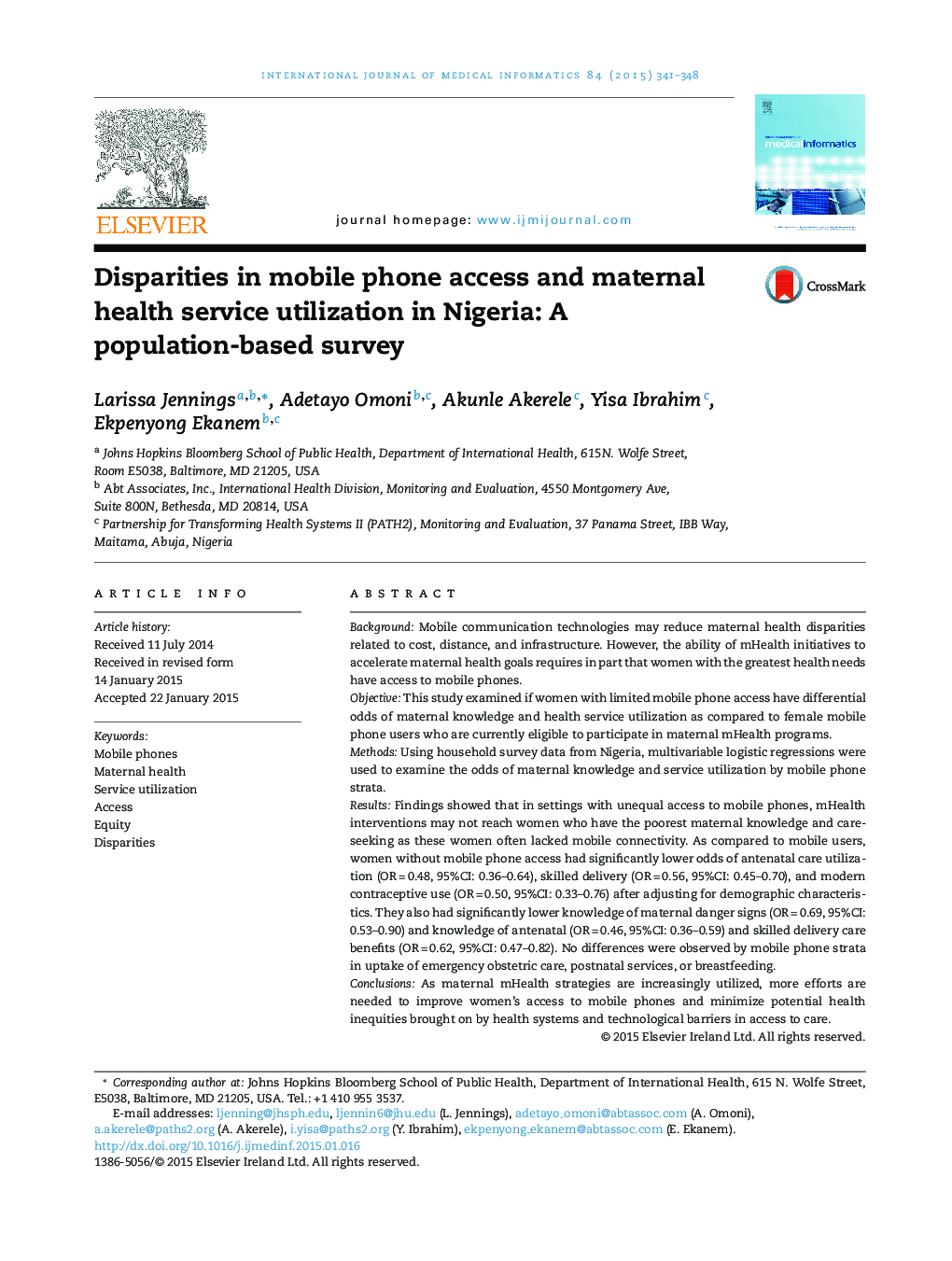| کد مقاله | کد نشریه | سال انتشار | مقاله انگلیسی | نسخه تمام متن |
|---|---|---|---|---|
| 516134 | 1449111 | 2015 | 8 صفحه PDF | دانلود رایگان |
• Women with no mobile phone access utilized fewer skilled obstetric services.
• Unconnected women were also less knowledgeable of maternal dangers signs.
• MHealth strategies may not reach women with the poorest knowledge and care-seeking.
BackgroundMobile communication technologies may reduce maternal health disparities related to cost, distance, and infrastructure. However, the ability of mHealth initiatives to accelerate maternal health goals requires in part that women with the greatest health needs have access to mobile phones.ObjectiveThis study examined if women with limited mobile phone access have differential odds of maternal knowledge and health service utilization as compared to female mobile phone users who are currently eligible to participate in maternal mHealth programs.MethodsUsing household survey data from Nigeria, multivariable logistic regressions were used to examine the odds of maternal knowledge and service utilization by mobile phone strata.ResultsFindings showed that in settings with unequal access to mobile phones, mHealth interventions may not reach women who have the poorest maternal knowledge and care-seeking as these women often lacked mobile connectivity. As compared to mobile users, women without mobile phone access had significantly lower odds of antenatal care utilization (OR = 0.48, 95%CI: 0.36–0.64), skilled delivery (OR = 0.56, 95%CI: 0.45–0.70), and modern contraceptive use (OR = 0.50, 95%CI: 0.33–0.76) after adjusting for demographic characteristics. They also had significantly lower knowledge of maternal danger signs (OR = 0.69, 95%CI: 0.53–0.90) and knowledge of antenatal (OR = 0.46, 95%CI: 0.36–0.59) and skilled delivery care benefits (OR = 0.62, 95%CI: 0.47–0.82). No differences were observed by mobile phone strata in uptake of emergency obstetric care, postnatal services, or breastfeeding.ConclusionsAs maternal mHealth strategies are increasingly utilized, more efforts are needed to improve women's access to mobile phones and minimize potential health inequities brought on by health systems and technological barriers in access to care.
Journal: International Journal of Medical Informatics - Volume 84, Issue 5, May 2015, Pages 341–348
